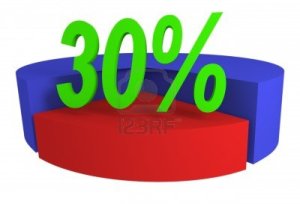
Going into more than one kind of light.
Image credit: Serp / 123RF Stock Photo
In reference to Ms Keller’s astonishing piece “Forget funeral selfies. What are the ethics of tweeting a terminal illness?” published online on 8 January 2014.
First, my full disclosure: Like Lisa Bonchek Adams, I have Stage IV (advanced, metastatic) breast cancer, although I am perhaps not as close to the end as Lisa is. I have a blog. I tweet and I use Facebook. Ms Keller, do you have something to disclose? I am at a loss to understand why you felt it necessary to write this opinion piece and more particularly why you felt it necessary to blitz Lisa Adams with barely disguised ad hominem attacks.
There are so many hurtful elements in “Forget funeral selfies” that I cannot respond to all of them. Indeed, I don’t want to. I read the piece yesterday (It doesn’t seem be a journalistic article, and it’s not really an essay, either. I don’t know how to describe Keller’s text other than as a “piece”.) and was so upset by it that I put off writing this response until today.
Let’s start with “funeral selfies”, shall we? Quoting Keller, “Should there be boundaries in this kind of experience? Is there such a thing as TMI? Are her [Lisa Adams’] tweets a grim equivalent of deathbed selfies, one step further than funeral selfies? Why am I so obsessed?” I’ll leave it to Keller to explore the question about her own “obsession” and her discomfort with it, though I think it would have been better for her on a personal level and would have led to a much deeper and more interesting essay had she done so before publishing.
Okay, then: funeral selfies – cellphone photographs some people take of themselves while attending funerals. They are in questionable taste at the very least, most of us would agree, and very self-centered at a time when our thoughts should turn to the deceased. From the beginning, then, Keller tells us what we are expected to take away from her piece: live tweeting one’s experience of terminal illness is bad form.
But how is tweeting (or blogging) my personal experience equivalent to funeral selfies, let alone “one step further”, a “deathbed selfie”? The comparison is so strange that I had a terrible time trying to take it in.
Then it came to me. Those of us who use social media to talk about our experience with our terminal illness are defying categories. Social media is supposed to be for people who eat in restaurants and play with their pets and attend sporting events and go to professional conferences, right? People with terminal illness are supposed to rest quietly in darkened rooms or lie sighing on chaise longues on sun porches or smile bravely as they murmur a few words to their nearest and dearest, right?
Could it be that Keller’s discomfort with her “obsession” with Lisa’s tweets is a reflection of society’s discomfort with death and dying? People like Lisa and like many of my brothers- and sisters-in-mets (my fond term for people who have metastatic breast cancer)—people like me—cause discomfort to some because we dare to bring our experience into the full light of day. We cause discomfort to some because we are living, living in acute awareness of our impending death, living in pain but living as fully as we can while we are dying.
I write because I am a writer. I’ve used words to try to understand and express my inner world since I was seven years old when I wrote an extended metaphor based on the life cycle of a silk worm. My writing has (thankfully) become more sophisticated as I’ve grown older and has become more of a consciously used tool of introspection. I suspect that is the case with many of us bloggers and, dare I say it, journalists.
Should we stop writing just because we are nearing the end of life? Should we forego the social interaction that is made so difficult by our physical condition but is facilitated through the new media? Should we lock ourselves away in a figurative darkened room so as not to chance disturbing the hale and hearty with thoughts of death?
This is not a question of ethics, Emma Keller; it is a social issue and an eschatological question (in the larger sense). It is not a social gaffe on the level of funeral selfies; it is an expression of our humanness, of our being as a social animal. Most importantly, it is not for you or anyone else to judge the decision of a dying woman.
The apology you owe to Lisa Bonchek Adams goes far beyond not having “given her advanced warning about the article”.


 Cancer isn’t cute. It is a mortal illness. It disfigures. It kills. The treatment involves cutting off pieces of your body, killing living tissue with radiation, poisoning your system with chemotherapy. The treatment can have life-long effects on your health and well-being And that is still no guarantee.
Cancer isn’t cute. It is a mortal illness. It disfigures. It kills. The treatment involves cutting off pieces of your body, killing living tissue with radiation, poisoning your system with chemotherapy. The treatment can have life-long effects on your health and well-being And that is still no guarantee. 


 Last week I posted
Last week I posted 